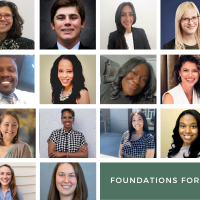Let me start by stating that yes – we read all grant reports.
When a new grant proposal is received, I review past reports and organization files as part of my due diligence practices, so please know that the reports are read and used as part of a continuing process.
Reporting requirements vary from foundation to foundation, but basically we are interested in learning:
- What the organization did with the grant funds and what the organization feels are the principal accomplishments
- Challenges that may have arrived during implementation – staffing changes, etc. including what refinements that were made to overcome those challenges
- Challenging or surprising aspects of the project, including any unexpected outcomes
- Advice for other organizations – what would the organization do differently given the chance?
- Moving forward – post-grant plans and sustainability
- Press releases/media clippings
As an example, an interim report from an organization included a report from a national organization related to financing policies related to their specific focus in the nonprofit world. The document included the Cleveland-based organization as a model, which is great to see – but it also provided a nice summary of federal resources and funding which is very helpful.
We work hard to be as informed as we possibly can. The grant reports, paired with the calls and emails we receive related to changes (both positive and negative) are tremendously helpful. We are working on figuring out the best way to share recommendations from these reports to share the insights gained by other nonprofits within our community. I’m experimenting with Twitter (perhaps a hashtag #advicefromgrantees ?). Other ideas are welcomed.
Please continue to add your comments to these posts to add to the collective knowledge base, to provide feedback, or even to request specific blog post topics.
As a P.S. – If you haven’t already, check out our Grantee Perception Report. Thanks to all of the nonprofits who provided feedback.


Open Source grant reporting! There is way too much great information locked in the file cabinets of community foundations across the US. It would be fabulous to have those reports available to the entire community. Not just summaries, but the whole report as what you might think isn’t of interest could be incredibly value to others.
I also believe that if these reports were in the public domain, that researchers would have a wealth of information to begin probing and that new knowledge would emerge. Imagine looking at a community across time, finding the intersections of projects. Or people across time. Or issues through time. No one foundation will ever have the resources to to this alone… but in the cloud… amazing insights could happen.
I know that there are confidentiality issues and we don’t want to squash candor, but I think if we put our collective hats on that we can figure out a way through the thorns.
So I challenge you to think very expansively about this. And cheer you on should you take it on.
Gayle – You touch upon some great points. The tug between transparency and confidentiality has been a topic of much discussion, from the local level to national philanthropic associations. We continue to discuss and explore the issue.
I am curious to hear from local grantee organizations – what would be the impact of sharing any or all of your grant report information? Would it change what you include? What would you like to see from other grantees?